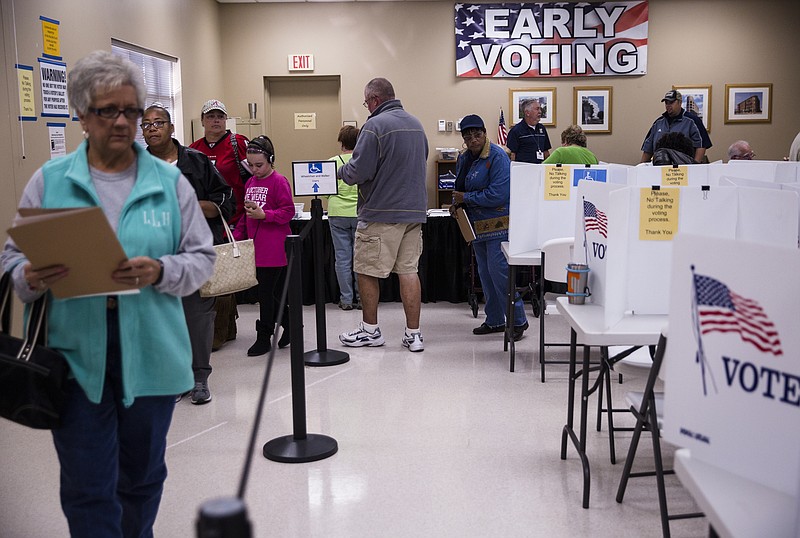President Donald Trump is his own worst enemy in being the exaggerator in chief.
It's accepted - though still unfair - that Republican chief executives are held to a different standard from Democrats in their daily pronouncements. But the president's bloviating style has made everything he says dead on arrival where the media is concerned.
That includes statements he makes that are 100 percent accurate, just not accepted by his political opponents (illegal immigration a danger); statements he makes that are true but exaggerated for emphasis (voter fraud); and statements that have no basis in fact (largest inaugural crowd ever).
We wish presidents were always truthful with the American people, but we haven't seen one, even one, in our lifetime.
But back to Trump. Earlier this week, he told congressional leaders between 3 million and 5 million votes caused him to lose the popular vote to Hillary Clinton. He later said he would ask for a major investigation into voter fraud.
The fact is he won the election. He needn't worry about the popular vote. One state - one, California - made the difference. Between 3 million and 5 million fraudulent votes? Highly doubtful.
But we'd go along with a thorough voter fraud investigation. Research by three Old Dominion University professors indicates some 834,000 noncitizens - 6.4 percent of the estimated 20 million adult noncitizens in the country - may have voted in the presidential election.
Of those votes, political scientist Jesse Richman says, 81 percent would have gone to Trump's opponent, Democrat Hillary Clinton. That wouldn't have come close to closing the nearly 2.9 million popular vote gap between the two, but it might have changed a state or two in the electoral vote count and is a significant number of illegal votes.
"Is it plausible that non-citizen votes added to Clinton's margin?" Richman wrote. "Yes."
The professors based their estimates on a semiannual poll, the Cooperative Congressional Election Survey, which is prepared by a consortium of 28 universities. That poll indicated about 620,000 noncitizens were illegally registered to vote in 2008. Extrapolating the numbers gave them the 2016 figures.
"Most voters are never asked for voter ID," said Tom Fitton of the conservative watchdog group Judicial Watch, "so it is dishonest to suggest that with the tens of millions of illegal and legal aliens here, there is no voter fraud. A federal voter fraud investigation is long overdue. It would be a simple matter of analyzing voter registration databases against federal databases of aliens and deceased individuals. Why is the left afraid to even ask the questions?"
Under Trump, it's time the questions were asked.
